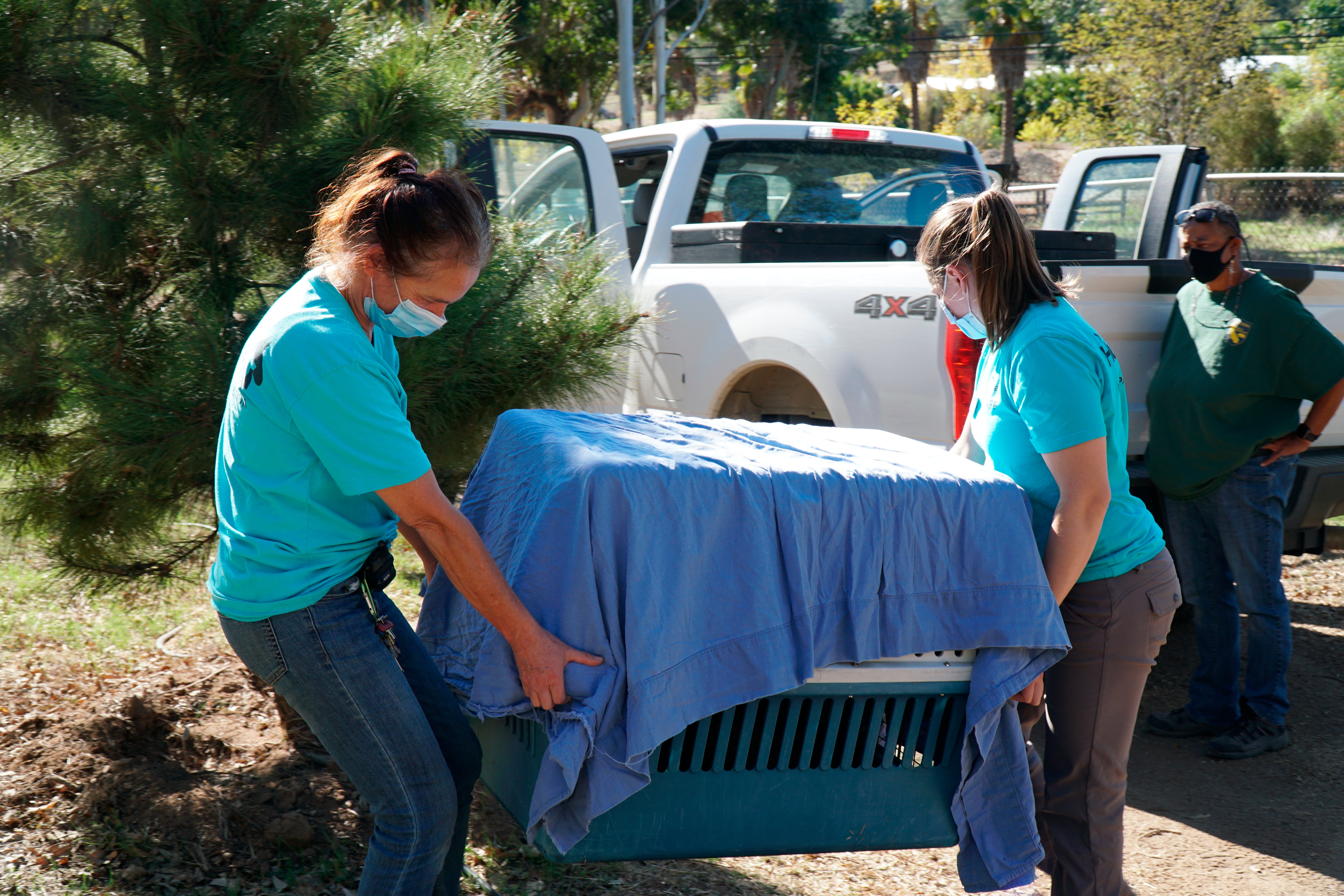Bobcat burned in California wildfire set for release to wild
A young bobcat that was badly burned in a Southern California wildfire will be released back into the wild

Your support helps us to tell the story
From reproductive rights to climate change to Big Tech, The Independent is on the ground when the story is developing. Whether it's investigating the financials of Elon Musk's pro-Trump PAC or producing our latest documentary, 'The A Word', which shines a light on the American women fighting for reproductive rights, we know how important it is to parse out the facts from the messaging.
At such a critical moment in US history, we need reporters on the ground. Your donation allows us to keep sending journalists to speak to both sides of the story.
The Independent is trusted by Americans across the entire political spectrum. And unlike many other quality news outlets, we choose not to lock Americans out of our reporting and analysis with paywalls. We believe quality journalism should be available to everyone, paid for by those who can afford it.
Your support makes all the difference.
A young bobcat that was badly burned in a Southern California wildfire will be released back into the wild, the San Diego Humane Society announced Tuesday.
The 7- to 9-month-old female was picked up on Tuesday from the group's Ramona Wildlife Center. A state Department of Fish and Wildlife worker took her to an area outside the site of the fire that biologists say has “rich food and water sources," according to a humane society statement.
The blaze erupted in September near Yucaipa in San Bernardino County. It was sparked by a pyrotechnic device a couple used for a gender reveal party. The fire destroyed several homes and killed a firefighter in San Bernardino National Forest.
The bobcat was discovered on Oct. 13 by a Yucaipa woman walking her dogs. The emaciated cat was treated for burns, some of which were infected, and did so well that she doubled in size to more than 9 pounds in a month and made a full recovery in seven weeks, the humane society said.
“This is why we work so hard for every single patient who comes through our doors — so they can return to the wild and thrive in their natural habitat,” Andy Blue, campus director at the Ramona Wildlife Center, said in a statement. “This little fighter went from emaciated with severe burns to becoming a feisty predator who will be able to fend for herself in nature. We are thrilled!”